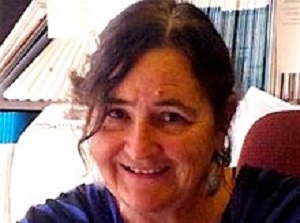 Claire Penn, who has died in Johannesburg at the age of 66, was a professor of speech pathology and audiology at the University of Witwatersrand, and a world leader in the field of linguistics, sign language and head injury, according to a Sunday Times report. She scored assorted milestones in child language development, stroke treatment and aphasia.
Claire Penn, who has died in Johannesburg at the age of 66, was a professor of speech pathology and audiology at the University of Witwatersrand, and a world leader in the field of linguistics, sign language and head injury, according to a Sunday Times report. She scored assorted milestones in child language development, stroke treatment and aphasia.
She did ground-breaking research on the complexities of human communication. Using her unique understanding of these complexities to improve access to healthcare in South Africa by helping healthcare professionals to communicate more effectively with each other and with patients across linguistic, social and cultural divides became an obsession.
Her clinical experience persuaded her that there was a gulf of incomprehension and misunderstanding on all sides which created huge barriers to proper healthcare for the majority of the population. "When people with complex diseases get tricky medications explained to them in a third or fourth language, you can't let it go at 'Oh, I told her'," she explained.
The report says she was an A-rated scientist but recognised the need to merge "hard" science with "soft" science to achieve better healthcare for patients whose needs were not being met by traditional methods. She saw that the humanities and social sciences like anthropology and sociology had a key role to play in the healthcare field.
"You can ask the routine questions – 'What is the baby's age, what is the baby's weight?' – and come away with a fraction of the relevant information that you get from saying: 'Tell me your story,'" she said. "You want to get past the health worker asking: 'Do you understand, Ma?' And the Mama saying 'Yes', because she has no idea and wants to go home."
What does "informed consent" mean to someone who doesn't understand English and when the translator, if there is one, doesn't know either? How does a patient know they've given it? she asked. What is an "explanation" and how does a patient know they've received it?
The report says she argued successfully in the face of considerable indignation, if not outrage, from more traditional scientists and medics that speech pathology should be placed in the faculty of humanities rather than science. Thus, she became the first A-rated scientist in the humanities faculty at Wits. She developed "health communication" as a whole new field deserving of serious academic attention.
The report says she was the director of the Health Communication Research Unit at Wits, which broke new ground in applying methods from the humanities and social sciences to healthcare. Her pioneering contribution to this new field of study incorporating both science and the humanities was internationally recognised and her research findings and methods have been applied globally.
The report says Penn lived for her work. She brought an almost manic energy to her research, and her output was as astonishingly prolific as it was world-class. She published over 100 papers in local and international peer-reviewed scientific journals, 25 chapters, and four books, including an extensive and ground-breaking multi-volume dictionary of Southern African signs. She never stopped working unless to sing choral music, another passion, lead bush walks and climb Mount Kenya.
But what she cared most about was that her research and writings should have a practical application and make a difference on the ground. She would spend months visiting remote rural clinics in the Eastern Cape and Mpumalanga, and not so remote clinics in Khayelitsha, dragging her postgraduate students along with her, watching, listening and talking extensively to patients, doctors, nurses and healthcare workers to see what worked and what didn't.
The report says Penn was born in Kenya in November 1951. She received her primary education at Nairobi Mombasa School. When she was 12, she moved with her family to South Africa where she matriculated at Springs Girls' High School.
She then went to Wits where she received her degree in logopaedics (speech and hearing therapy) cum laude in 1972. In 1983, she received a PhD, also from Wits.
From 1973 to 1976 she worked as a clinical tutor at Wits before moving to England, where she was a British Council scholar at New Addenbrookes Hospital. On her return she held the endowed chair of speech pathology and audiology at Wits and was a visiting research fellow in the department of linguistics at Macquarie University in Sydney, Australia.
She became senior research specialist at the Human Sciences Research Council and worked as a consultant to various international institutions.
Through the Paediatric Aids Treatment for Africa network she facilitated health communication workshops across Africa and became something of a fixture at global Aids conferences, where professors of speech and hearing were not traditional drawcards.
The report says she received the Order of Mapungubwe (silver) from president Thabo Mbeki in 2007 for her contribution to the field of speech and language pathology.
Penn, who was diagnosed with cervical cancer in 2016, is survived by her partner, Martin Templer, and son Adam Penn-Nicholson. Another son, Simon, died recently.
[link url="https://www.timeslive.co.za/sunday-times/opinion-and-analysis/2018-07-28-claire-penn-leader-in-field-of-linguistics-who-understood-soft-science/"]Sunday Times report (subscripton needed)[/link]
